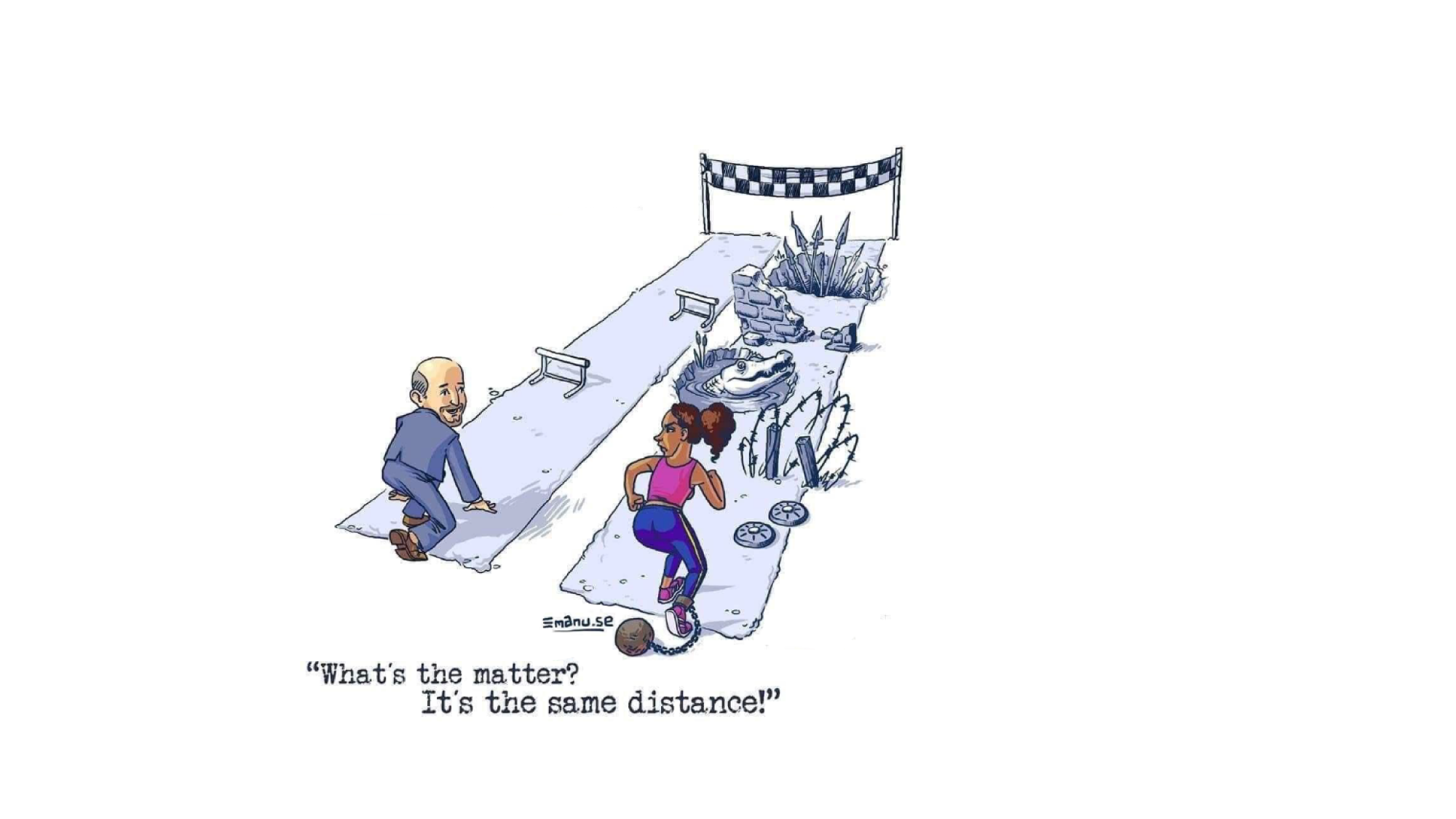Equity
We need to understand what equity is to increase it.
Part of the 'Equity Change Project'
Introduction
This section explores the idea of equity. It will help you think about how to have conversations about equity and how to make inequities visible.
We cover what equity is and why it’s such an important issue in adult social care.
We explore how power, privilege and position – including white supremacy – affect people’s experiences of social care and the outcomes.
We also introduce the concept of the ‘master’s tools’ as a way of understanding the need for a different approach to change systemic problems.
Watch our short film for an introduction to equity.
Length: 6 minutes.
Analogy - The race
Imagine a race where the participants begin with different burdens, symbolising life’s obstacles.
Some carry almost nothing, representing privilege. Others bear heavy weights, symbolising systemic disadvantages, such as race, gender, disability, age and poverty (and many others).
The finish line signifies equal opportunity – a goal we all share.
Equity is the game-changer. It's not about everyone starting from the same place; it's about removing the obstacles to create fairness.

'What's the matter? It's the same distance!'
Understanding equity
The following sections consider how we can better understand equity and use a range of models.
In intersectionality, context is crucial. The understanding of inequity and the response to this repositions shame and blame from the individual to the situations they inhabit.
Here we think about current inequities in adult social care and what equity involves.
Demarginalizing the intersection of race and sex: Article
Crenshaw, K. (1989). Demarginalizing the intersection of race and sex: a black feminist critique of antidiscrimination doctrine, Feminist theory and antiracist politics. University of Chicago Legal Forum, Vol. 1989, Article 8.
Social Care Future vision: Website
Social Care Future is an organisation that brings together people with lived experience, professionals, support providers, politicians and community groups among many others. They all act as allies to build a shared commitment to bring about major positive change so that social care enables people to do what they love with their life.
Equal opportunities handbook: Book
Clements, P., & Spinks, T. (2009). The equal opportunities handbook: How to recognise diversity, encourage fairness and promote anti-discriminatory practice (4th ed.). Kogan Page.
How progressive white people perpetuate racial harm: Book
DiAngelo, R. (2021). Nice racism: How progressive white people perpetuate racial harm. Penguin.
Learning about power from those who complain: Book
Ahmed, S. (2021). Complaint! Duke University Press.
Fitness to practise process – an analysis of diversity data: Report
Social Work England. (2023). Social Work England’s fitness to practise process: An initial analysis of diversity data.
Who’s leading in social work?: Report
Adult Principal Social Workers Network. (2017). Who is leading the way? An introductory report on the world of social work leadership.
The master’s tools: Article
Lorde, A. (1979). The master’s tools will never dismantle the master’s house. In A. Lorde (1984), Sister outsider: Essays and speeches (pp. 110–113). The Crossing Press.
Deconstructing white privilege: Video
DiAngelo, R. (2017). Deconstructing white privilege with Dr. Robin DiAngelo. YouTube.
Building trust in diverse teams: Toolkit
Oxfam. (2007). Building trust in diverse teams: The toolkit for emergency response.

